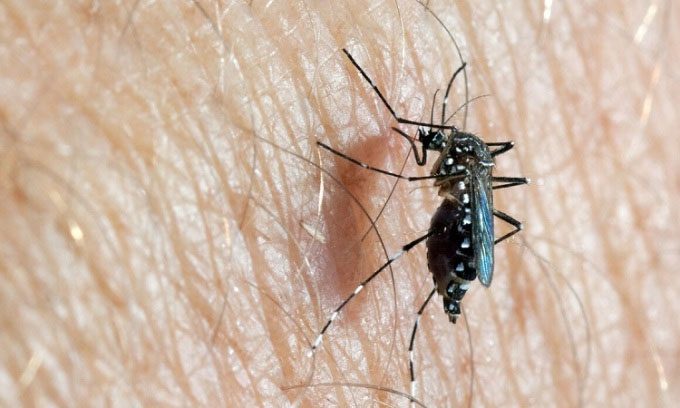A group of Chinese scientists has found evidence that mosquitoes can transmit vaccines to prevent the spread of viruses through animals.
Professor Zheng Aihau from the Laboratory of Pest Management and Rodent Control at the Institute of Zoology and colleagues have developed new technology that could transform mosquitoes into intermediaries for delivering immune vaccines to wildlife. This research lays the groundwork for developing a vaccine distributed via mosquitoes to combat animal-borne viruses. The findings not only help to reduce the spread of viruses in hard-to-reach wild animal populations but also protect endangered animals from virus-related diseases, South China Morning Post reported on January 4.

Aedes mosquitoes are vectors for viruses that cause diseases like Zika. (Image: ECDC)
The research team discovered that the bites of genetically modified mosquitoes on wild animals trigger a strong immune response that lasts for an extended period. After immunization, the animals do not contract the disease, thereby preventing the early spread of various viruses, including Zika virus (ZIKV).
Zika virus belongs to the flavivirus genus and is primarily transmitted by Aedes mosquitoes. Infected individuals may experience a range of symptoms from rashes and fever to muscle and joint pain. If a mother contracts the Zika virus during pregnancy, her child may be born with microcephaly and many other congenital malformations.
Zheng and colleagues were inspired by a previous study on another virus in the flavivirus genus, CYV virus, which was first discovered in 2009 in Qiaoyang City, Liaoning Province, China. That study found that the virus could replicate in mosquitoes but not in vertebrates. The researchers used CYV as a modified virus to create a vaccine containing proteins from another virus. They extracted several proteins from CYV and incorporated them into ZIKV cells to create a non-infectious CYV-ZIKV virus. CYV-ZIKV can replicate effectively in mosquitoes and be secreted through their saliva.
By providing mosquitoes with blood containing the CYV-ZIKV virus, the research team transformed them into virus carriers. They then tested the efficacy of the new vaccine on mice. Using infected Aedes mosquitoes with the new CYV-ZIKV virus, each mouse was bitten up to three times by 30 different mosquitoes to stimulate a natural response.
The researchers observed that the mice developed a protective immune response after being bitten by mosquitoes carrying the CYV-ZIKV virus, producing antibodies that lasted over five months. After being exposed to a large amount of Zika virus, all vaccinated mice survived. Additionally, Zheng and colleagues found that immunity in mice also prevented the Zika virus from being transmitted from mice to mosquitoes, halting its cycle in nature. To eliminate the possibility of the artificial CYV-ZIKV virus spreading through wild mosquito populations, all mosquitoes used in the experiment were irradiated with X-rays to render them sterile.


















































